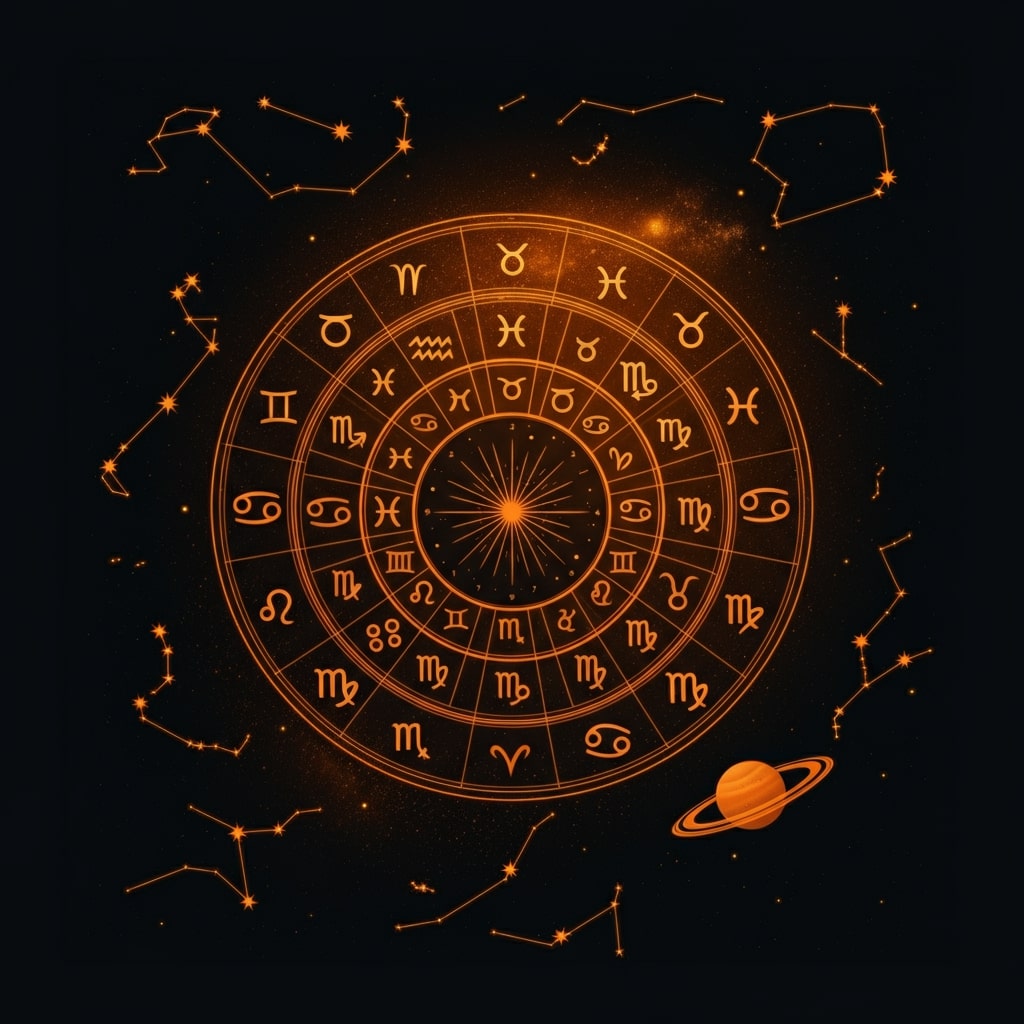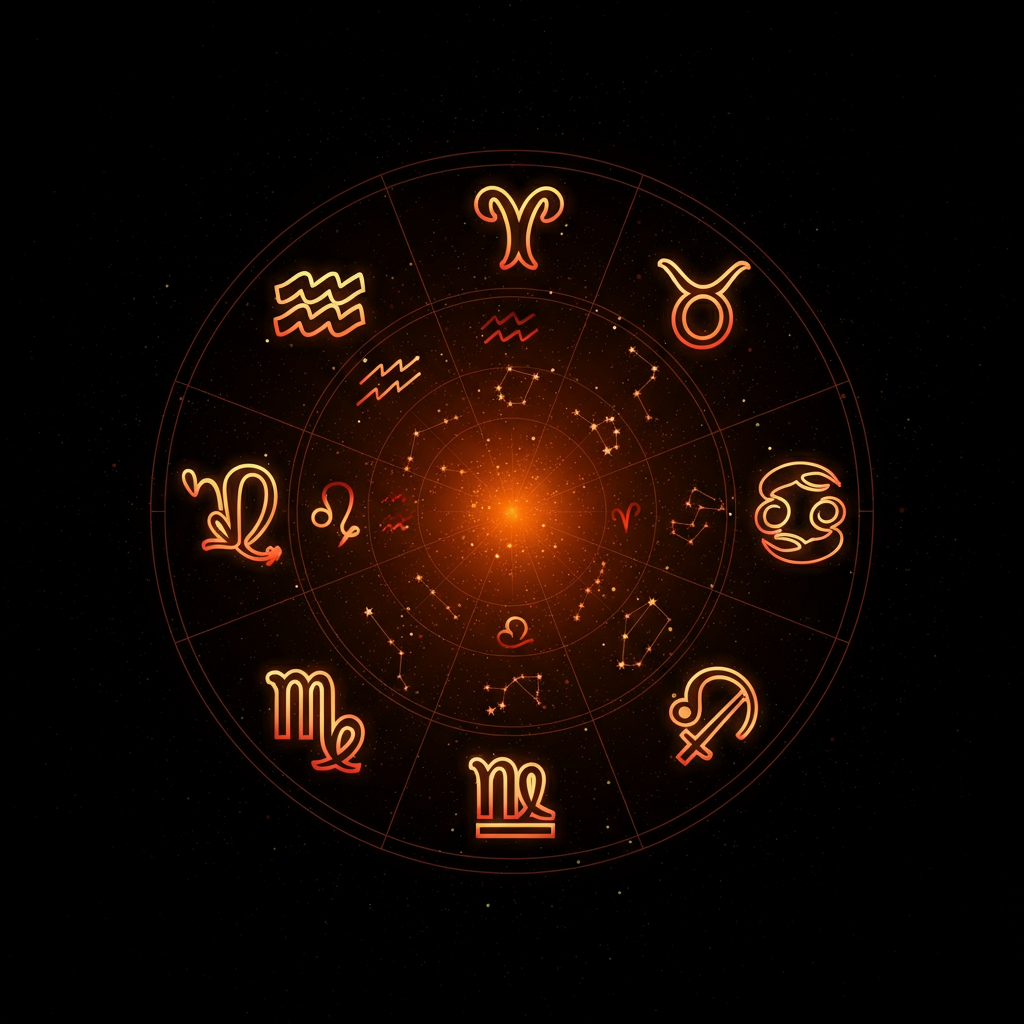Astrology offers a profound way to explore life’s mysteries, and understanding the astrological houses is a key part of unlocking those insights. Just as the zodiac signs reveal aspects of personality and energy, the 12 astrological houses map out the different areas of life where those energies play out. Think of them as the stage where the planetary actors perform the drama of your life.
Each house corresponds to specific life themes, from self-expression and relationships to career and spirituality. This article will guide you through the significance of astrological houses, explain what each represents, and show how you can interpret them in your birth chart to gain clarity about your life.
What Are Astrological Houses?
Astrological houses are 12 segments that divide your birth chart, much like slices of a pie. While the zodiac signs follow the Earth’s orbit around the Sun over a year, the houses relate to the Earth’s rotation over a day. This creates a dynamic and personalized system that depends on your exact time and place of birth.
Each house governs specific aspects of life, such as identity, relationships, work, and home. The planets located in a house (or transiting through it) influence these areas with their unique energies. Additionally, the zodiac sign on the cusp (or starting boundary) of each house adds another layer of meaning.
How Astrological Houses Work
To understand how the houses apply to you personally, you’ll need your birth chart, which requires your birth date, time, and location. The rising sign (or Ascendant) determines the order of houses in your chart. For example, if your Ascendant is Aries, the first house starts there and proceeds through the zodiac in order.
The 12 Astrological Houses
Here’s a detailed breakdown of each house, their meanings, and the planetary rulers that influence them:
1. First House: The House of Self
- Theme: Identity, appearance, first impressions
- Ruler: Mars (Aries)
The first house represents how you present yourself to the world. It’s tied to your physical appearance, demeanor, and basic personality. Planets here influence your outward identity and the way others perceive you. - Example: A Sun in the first house may give someone a strong sense of self-confidence and a need to shine in public spaces.
2. Second House: The House of Value
- Theme: Money, possessions, self-worth
- Ruler: Venus (Taurus)
This house governs material resources, wealth, and personal values. It reflects how you earn, spend, and appreciate what you have. - Example: Jupiter in the second house could indicate financial abundance or a tendency toward generosity with money.
3. Third House: The House of Communication
- Theme: Communication, learning, local environment
- Ruler: Mercury (Gemini)
The third house focuses on speech, writing, and early education. It also covers siblings, short trips, and everyday interactions. - Example: Mercury in the third house might make you a natural communicator, writer, or public speaker.
4. Fourth House: The House of Home
- Theme: Foundation, family, roots
- Ruler: Moon (Cancer)
This house represents your home life, family ties, and sense of security. It’s linked to your childhood and ancestry. - Example: If Saturn is in the fourth house, you might feel responsibilities or restrictions related to your family or home environment.
5. Fifth House: The House of Pleasure
- Theme: Creativity, love, recreation
- Ruler: Sun (Leo)
The fifth house is all about joy, romance, and artistic expression. It’s where you explore leisure, hobbies, and personal passions. - Example: Venus in this house might indicate someone with a flair for creativity and a strong romantic life.
6. Sixth House: The House of Health
- Theme: Work, routine, well-being
- Ruler: Mercury (Virgo)
The sixth house governs daily tasks, physical health, and how you serve others. It’s about building structure and maintaining order in life. - Example: Mars in the sixth house might result in a highly driven work ethic or physical energy.
7. Seventh House: The House of Partnerships
- Theme: Marriage, partnerships, contracts
- Ruler: Venus (Libra)
The seventh house rules one-on-one relationships, from marriage to business deals. It reflects both harmony and conflict. - Example: A Moon placement in this house may indicate emotional sensitivity in partnerships.
8. Eighth House: The House of Transformation
- Theme: Death, rebirth, intimacy
- Ruler: Pluto (Scorpio)
This house touches on deeper realms, like shared resources, inheritance, and spiritual growth. It’s the domain of transformation, endings, and beginnings. - Example: Having Uranus here could signify breakthroughs in understanding shared finances or personal transformation.
9. Ninth House: The House of Higher Learning
- Theme: Philosophy, travel, wisdom
- Ruler: Jupiter (Sagittarius)
The ninth house relates to expanding horizons through education, travel, and spiritual exploration. - Example: Neptune in this house could indicate a dreamy, imaginative approach to spirituality or love for distant lands.
10. Tenth House: The House of Career
- Theme: Ambitions, reputation, public image
- Ruler: Saturn (Capricorn)
The tenth house reflects professional goals and societal status. It’s connected to your legacy and what you aspire to achieve. - Example: The Sun here might indicate a strong focus on one’s career and desire for public recognition.
11. Eleventh House: The House of Community
- Theme: Friendships, social networks, aspirations
- Ruler: Uranus (Aquarius)
This house governs group dynamics, societal roles, and long-term dreams. - Example: Mars in the eleventh house may reflect someone who is proactive in community leadership.
12. Twelfth House: The House of the Subconscious
- Theme: Spirituality, solitude, hidden truths
- Ruler: Neptune (Pisces)
Often seen as mysterious, the twelfth house relates to intuition, dreams, and inner growth. - Example: Having Pluto here could signify deep psychological transformation and profound spiritual insights.
Practical Tips for Interpreting Astrological Houses
- Get the Basics Right
Using an online birth chart tool, find your Ascendant and house placements. - Focus on Planets in Key Houses
Look at houses with planetary activity for deeper insights into life areas that hold significance. - Connect the Dots
Integrate planetary rulers, house themes, and zodiac signs for a holistic view. - Use Houses for Goal-Setting
Identify challenges (e.g., Saturn-ruled houses) and growth opportunities to enhance personal development.
FAQs About Astrological Houses
1. How do I locate houses in my chart?
Birth chart calculators show houses based on your exact birth data. Look at the pie chart, which divides into 12 sections, each labeled with a number.
2. What do empty houses mean?
Empty houses aren’t insignificant. They just indicate areas where you may not need as much planetary focus, but their ruling planets still influence those areas.
3. How do signs and planets interact with houses?
Zodiac signs add flavor to the house’s theme, while planets bring action. A planet in a house energizes its themes, while the ruling sign colors its expression.
4. Do houses determine fate?
No, houses show tendencies, not destiny. They’re tools for guidance, not fixed conclusions.
5. Why do house systems differ?
Different astrologers prefer varying systems, like Placidus or Whole Sign, which calculate houses differently. Choose one that resonates with you.
6. What’s the most critical house?
This depends on your goals. For relationships, look to the seventh house; for career, the tenth house.
Final Thoughts
Astrological houses illuminate the various aspects of our lives, giving us a roadmap to understand ourselves and our experiences. By studying your houses and their rulers, you can deepen your self-awareness, overcome challenges, and work toward your personal goals. Remember, astrology is a tool for empowerment, offering guidance to help you make conscious, confident choices.





